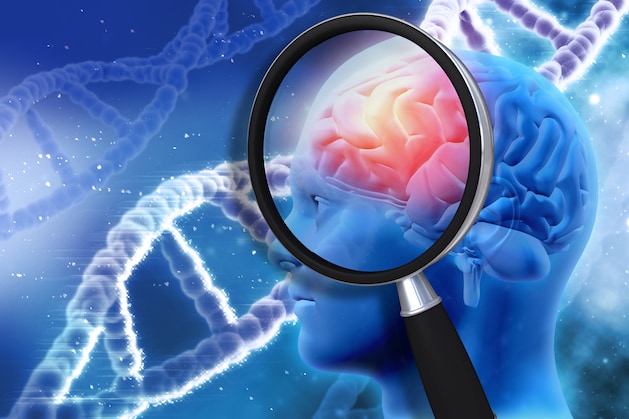With the help of a language test that only lasts 60 seconds, family doctors will in future be able to identify whether a patient may be suffering from dementia. However, the test alone is not sufficient for diagnosis, emphasizes the developer.
Misplaced the key, orientation problems – and the first linguistic difficulties. These are early warning signs of dementia. Around 1.8 million people in Germany live with dementia. It is estimated that by 2050 there could be 2.8 million.
Early diagnosis is important. Although the disease cannot yet be cured, symptoms can be improved through medicinal and non-medicinal measures, explains Jürgen Herzog, neurologist and head physician at the dementia day clinic at the Schön Clinic in Munich.
The problem: More noticeable warning signs usually only appear when the disease has already progressed. This delays the diagnosis. A Hungarian research team led by psychiatrist János Kálmán now wants to change that.
The scientists have developed a language test that focuses on temporal parameters. The so-called speech gap test (S-GAP test) analyzes this
“We tried different approaches and finally landed on the temporal language parameters because these are neither culture- nor education-dependent and could be more reliable than the semantic parts of the language analysis,” Kálmán explained to the medical portal Medscape .
The computer program is an artificial intelligence and was trained with the voices of old and demented people. Even a 60-second speech sample is sufficient.
In a first test in 2018, the test subjects were all native Hungarian speakers, so the test was conducted in Hungarian. Kálmán has since shown that it also works in English and German. It is currently being tested in Spanish.
For him, it is not about confirmed diagnoses, but rather an initial screening. Family doctors often have little time. With their language test, the researchers wanted to develop a tool with which family doctors can easily and quickly identify which patients need more complex dementia tests. These could then be referred to specialists.
And what if a dementia diagnosis is actually made? “You can improve symptoms now, but especially in the future, with medication and non-medication measures,” emphasizes neurologist Herzog.
Medication measures
Three types of active ingredients are currently approved as basic therapy: antidementia drugs (intended to counteract cognitive losses and delay the progression of the disease), antidepressants (if sufferers are also under psychological stress) and neuroleptics (have a calming and antipsychotic effect).
New drugs, so-called antibodies, are also currently offering hope. Lecanemab and donanemab are already approved in the USA. “Both affect the Alzheimer’s-related protein deposits in the brain, which contribute to cognitive decline,” explains Herzog. They are intended to significantly slow down the clinical course of dementia. Lecanemab is also expected to come onto the European market. According to Herzog, possibly this year.
Non-drug measures
There are also non-medicinal measures that are said to have a protective effect. “We know that around 40 percent of the risk factors for whether people develop dementia or not can be influenced. An active, healthy lifestyle plays a large part in this,” says Herzog. “By avoiding or actively managing known risk factors.”
It refers to the twelve Alzheimer’s risk factors listed by “The Lancet Commission on Dementia and Prevention” in 2020.
He therefore urgently recommends treating age-related hearing loss “with a view to preventing dementia”. You should not smoke and drink little or no alcohol. “But regular exercise and a healthy, balanced diet are also beneficial.”















